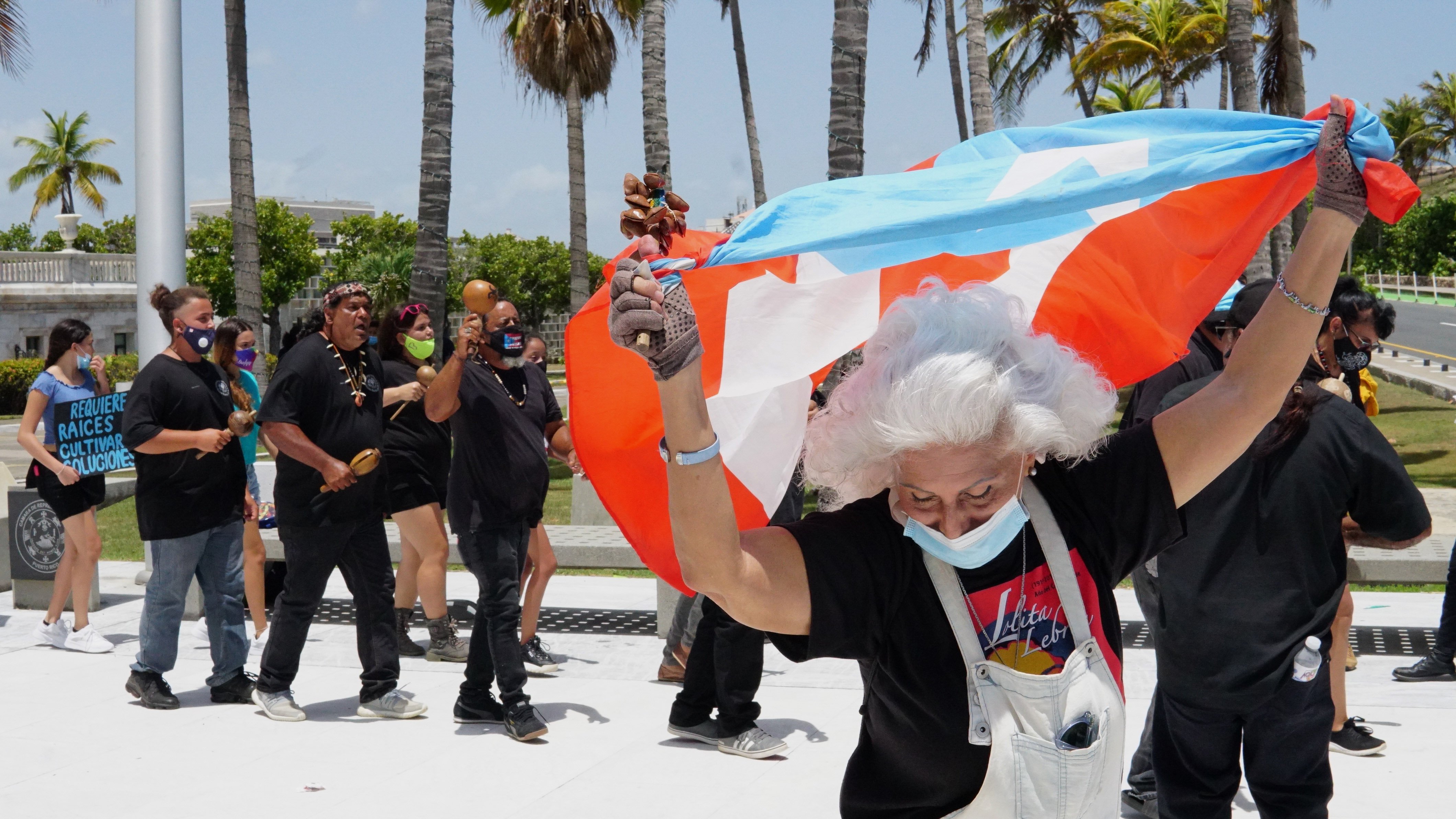
Puerto Rican activists fight to remove Columbus from the island
Monuments to the U.S.’s dark history are being rapidly removed amid uprisings, but Puerto Rico has yet to see similar action.
As the United States undergoes a massive removal of confederate monuments and flags across the mainland, its oldest colony, Puerto Rico has yet to undergo a similar transformation.
Throughout the island, many tributes to colonization still stand, such as commemorations of Christopher Columbus and Juan Ponce de León.
Resistance groups have been pushing for the removal of these monuments, but the fight has been renewed in the midst of global protests against racism and police brutality.
On Saturday July 11, dozens of Indigenous activists marched through Old San Juan dressed in traditional Taíno clothing, banging on drums and blowing on conch shells, demanding the colonialist statues be removed.
The demonstration began at the Capitol Building and included a march to the statues of Christopher Columbus (Plaza Colón) as well as the statue of Juan Ponce de León (Plaza San Jose), where a ceremonial tradition was performed by the Indigenous Taínos and Arawacos of Borikén.
“These statues represent all that history of violence, of invasion, of looting, of theft, of murder,” said Pluma Barbara, an activist and member of Puerto Rico’s Council for the Defense of Indigenous Rights. “These are crimes against humanity.”
For Barbara, these statues represent and perpetuate colonial genocide, pillaging and sexual violence against women and girls. They also represent the lie that indigenous Puerto Ricans no longer exist.
“They want to say we are extinct. Because if you extinguish un pueblo, then there isn't a pueblo to defend its rights to the land, political participation, economic structure, social structure, education and reparations,” Barbara explained.
Support also came from members of the political resistance group Jornada: Se Acabaron Las Promesas, as well as Afro-Caribbean activists who denounce the slavery and exploitation that contributed to colonization.
RELATED CONTENT
Zulma Oliveras Vega, a Two-Spirit and queer human rights advocate was impressed by the patience of the ceremony.
“While still claiming that they’re tired of these statues of these people who represent genocide, they’re politiely asking to remove them,” she said.
Statues of Columbus have been toppled or removed in many U.S. cities due to the civil unrest following the murder of George Floyd. Protesters in Baltimore also threw a Columbus statue into a harbor, while protesters in Boston beheaded one.
Meanwhile, officials in the states of New York, Missouri, Connecticut, Ohio and California have removed similar statues. Philadelphia has even voted to remove its Columbus statue in after days of contentious stand-offs between protesters and supporters of the monument.
But one enormous Columbus state remains rooted in U.S soil. The creation, titled, “Birth of a New World,” stands along Puerto Rico’s north coast, at more than twice the size of the Statue of Liberty without its pedestal.
Columbus landed in Puerto Rico in 1493 accompanied by Ponce De León, who later became the island’s first governor. Historians and anthropologists believe that about 60,000 Taínos lived there at the time, but they were forced into labor and succumbed to infectious disease outbreaks.
Activists feel that the time has long since come to stop celebrating historic figures that brought harm to entire groups of people. They believe that the removal of these colonialist statues is the first step in taking down symbols of oppression across Puerto Rico.











LEAVE A COMMENT:
Join the discussion! Leave a comment.